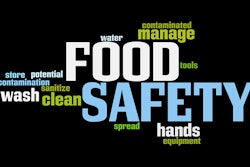
Plan to achieve digital food traceability too reliant on emerging technology, industry group says
The U.S. Food and Drug Administration’s (FDA) vision of a new era of digital food traceability may have unintended consequences for the animal feed industry, leaders of the American Feed Industry Association (AFIA) said.
While the AFIA supports the agency’s overall goal of improved food traceability, the trade association urged “FDA to temper its enthusiasm to embrace new technology with the reality of current infrastructure in the U.S.” in comments filed December 5.
“The potential for government mandated implementation of emerging technology will create unwarranted economic drains and take resources away from the adoption of new systems that directly impact the production of safe and wholesome food,” the statement reads.
Acting FDA Commissioner Ned Sharpless announced in April that the agency is developing a “strategic blueprint” that would outline plans to create a “more digital, traceable and safer food system.” Though the official blueprint is slated for release in 2020, the FDA has indicated that its goal is to use blockchain, sensor technology, artificial intelligence and the Internet of Things to build on the Food Safety Modernization Act (FSMA).
While some feed manufacturers have begun to implement these technologies, others lack the resources and infrastructure to implement what remain in many areas novel new tools, said Louise Calderwood, AFIA’s director of regulatory affairs.
“We currently have companies that are ahead of what’s being asked by FDA — they’re already embracing the technology,” Calderwood said. “But then we have other companies that are fully FSMA compliant, and they’re conducting their work using hand-based systems.”
One medium-sized feed mill of which she was aware, Calderwood said, has recently demonstrated its ability to achieve a complete lockdown of their facility and initiate a recall within four hours, without any of the technologies for which FDA has expressed a preference.
Calderwood said AFIA would prefer to see regulation that focuses on results, rather than prescribing specific methods for compliance.
“To be able to demonstrate speed and accuracy with a food recall, and with traceability, that is the standard,” she said. “And how a company goes about achieving that, should be allowed to have a modicum of flexibility.”
Calderwood said AFIA was not “backing away from the adoption of technology,” but that it sought to foster flexibility and creativity, particularly for smaller companies. “Requiring smaller companies that have no need” to use certain technologies to implement them, she said, “could have unintended consequences because of the cost.”

















